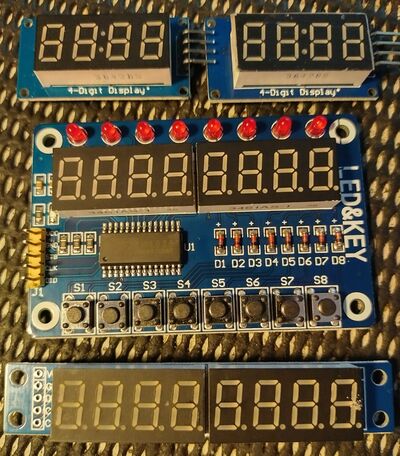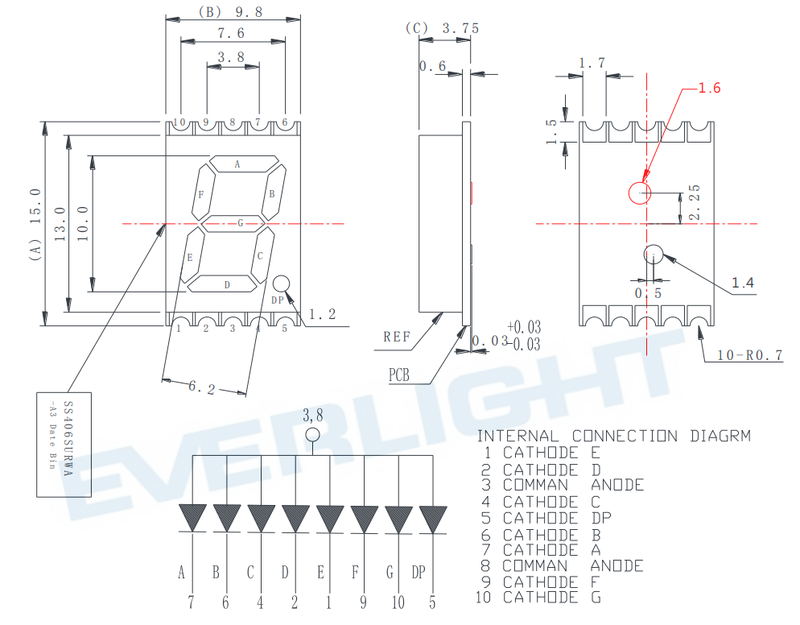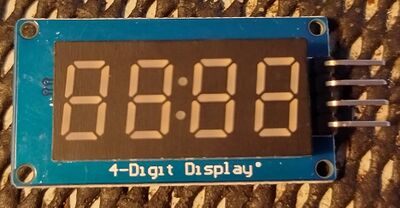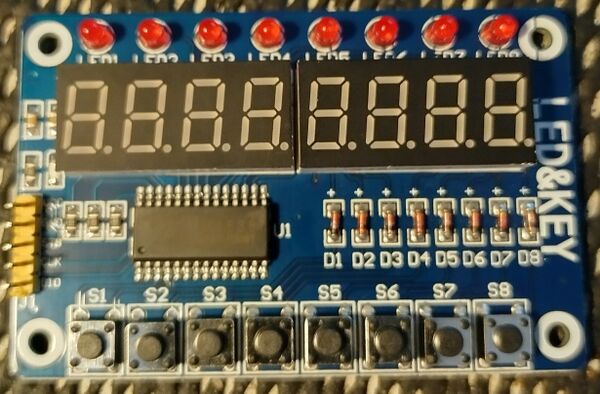Difference between revisions of "7 Segment LED Display Modules"
| (2 intermediate revisions by the same user not shown) | |||
| Line 29: | Line 29: | ||
[[File:Crazy 8 Digit Display, LED and Button module.jpg|600px]] | [[File:Crazy 8 Digit Display, LED and Button module.jpg|600px]] | ||
| + | |||
| + | This module is based on a [[TM1638]]. | ||
| + | |||
| + | [https://stm32world.com/images/e/ea/TM1638en.pdf TM1638 Datasheet] | ||
== 8 Digit LED Display module == | == 8 Digit LED Display module == | ||
| − | The last one is based on a [ | + | The last one is based on a [[MAX7219/MAX7221|MAX7716]] (clone). |
[[File:8 Digit LED Display.jpg|600px]] | [[File:8 Digit LED Display.jpg|600px]] | ||
Latest revision as of 08:40, 15 November 2024
For a project, I needed to display some numbers. There are of course a lot of different way to approach this, but a cheap (and presumably easy) way is to get some old fashioned 7 segment LED display modules.
The 7 segment LED displays literally consist of 7 LEDs arranged in a way where numbers can be displayed. From a random datasheet they are all arranged like this:
In other words, to drive 1 digit one would need 8 GPIOs.
This is of course quite hard if one were to drive 4 or 8 digits (4 x 8 = 32 or 8 x 8 = 64 GPIOs needed).
As is quite usual with me, I might (as can be seen on the photo to the right) have overdone it a bit and I managed to get 3 different types.
These modules are readily available and they are absolutely insanely cheap. Unfortunately, cheap usually means:
- Poorly Documented
- Some bizarre communications protocol
4 Digit Display Module
The first module is one with 4 digits.
This one is based on a chip called TM1637.
Crazy 8 Digit, LED and Button Module
This module is based on a TM1638.
8 Digit LED Display module
The last one is based on a MAX7716 (clone).
Miscellaneious Links
To be added




